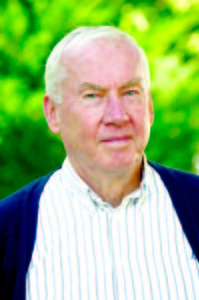Small World: Desert sands blowing our way?
By Henry Precht
BN Columnist
The essential starting point for an effective national defense is to know and understand your enemy(ies). There’s where we — the U.S.A. — are most vulnerable. We ignore, accidentally or reluctantly, those who are threatening to our security.
In my — perhaps poorly informed — opinion, the largest danger to us comes from Saudi Arabia. A “friend†since World War II, the Kingdom remains so largely through the inertia of policy and, to be sure, our dependency on oil, plus the facts that that the Saudis have piled up reserves estimated at $700 to $800 billion (!) and that they feel terribly insecure about their safety in a rough neighborhood and are among the world’s biggest arms buyers.
Those bits of info add up to the creation of three powerful lobbies in Washington: oil companies, arms merchants and, albeit weaker, the foreign policy establishment in and outside government. These three have managed to keep the Kingdom safe and stable by protecting it from harmful criticism and turning blind eyes to its weaknesses.
The regime in Riyadh is, even by its medieval standards, terribly vulnerable. No country on the planet, especially no important country, is ruled by such an aged family. It is a family, like all others, dedicated to the preservation in power of its top members and their favored offspring. The principle is the survival of the blessed, not necessarily the most competent. The second powerful principle is the supremacy of the rigidly radical Wahabis, a Sunni (majority) branch of Islam that condemns the “heretical†Shias.
Thus, Iran is the Kingdom’s constant preoccupation. Ninety-five percent Shia and with an Iraq war hardened, if poorly equipped, military, the clerical regime in Tehran could pose an impossibly difficult problem for the Saudis, perhaps ten per cent of whose population is Shia and resides in the oil-rich eastern provinces.
To combat that supposed threat, Saudi Arabia has to rely on means it can manage. These include financing Sunni guerilla groups opposed to and willing to conduct sabotage against Iran and anti-Shia groups in Iraq, Pakistan and, most damagingly for human life, Syria. Cash from Saudi Arabia flows to these fighters, including that bête noir of the U.S.A., Al Qaida.
When you read of dozens of deaths in Iraq or Pakistan or battles in Syria, you should read between the lines of the normally silent American press the responsibility of Riyadh. While the government itself may not be writing the checks, plenty of Saudis and their buddies in Kuwait and other Persian Gulf states are doing so without official interference.
Besides the Shia, Saudis fear Islamic democrats. When the relatively moderate Moslem Brotherhood won national elections in Egypt, the Kingdom would not raise a ringed finger to help. But, one suspects, they urged (with $$$) the army to move. Since the coup Saudis have provided abundant financial cover and stood behind (one suspects) the harsh army crackdown on the “terrorist†MB.
Next door in poverty-stricken Yemen, thousands of workers who went to Saudi Arabia for the jobs have been booted out. Big bucks have flowed in to buy the loyalty of various tribes and, in the process, to keep the country unstable — its tough tribesmen occupied at home unlikely to cross the border. Elsewhere around the region Saudi Arabia finances conservative rulers who will keep the mob outside the gates.
What of the other — real — threats to the Kingdom? That would be the youth, locked in a dourly strict religious society, some of them brainwashed as in al Qaida, most of them unemployed, but with knowledge of the outside world from social media. And, without question, many of them resentful of the aged and inept autocrats who bribe them to behave — as long as the gold holds out. If youthful strife gets going, there is no plan B except to crack skulls.
Unfortunately, this is the bunch with whom the United States is imbedded. More unhappily at this stage there are few options but to back the regime should it be challenged. Is it too late to open a little daylight between us? Maybe not. Maybe if the Iranian nuke agreement prospers, the Saudi royals will grasp that they have to live in a more plural world, one that requires concessions and compromise.
We can only hope that a new, bright light will dawn in the desert.
Henry Precht is a retired Foreign Service officer.


